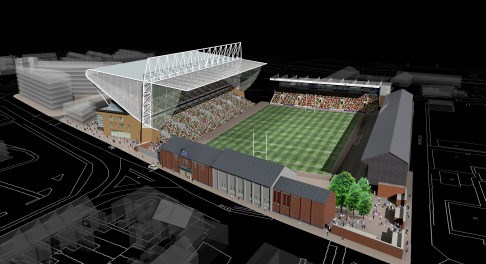Mega events: nations battle to host the 2015 or 2019 rugby world cups
Despite a number of countries that initially expressed interest in bidding falling away, England, Italy, Japan and South Africa have made bid presentations to the International Rugby Board (IRB) in Dublin.
Rugby World Cup (RWC) chairman Bernard Lapasset said: “The presentations mark the latest milestone in the detailed analysis of the tenders, including independent financial and commercial evaluation. The process culminates with the IRB Council selecting the host unions for rugby world cup 2015 and rugby world cup 2019 at its special meeting of council on July 28.”
A report by consultants Deloitte estimated that the gross economic benefits of staging a RWC are worth £2.1 billion (€2.4 billion) and more than 2.2 million public tickets were sold for the last tournament in France, which boasted a 97 per cent attendance rate and a net surplus of £122.4 million (€138.5 million).
No Asian country has hosted a RWC and Japan were controversially pipped to the 2011 tournament by New Zealand even though the Kiwis proposal is not expected to match the income of the 2007 tournament in France.
“We have changed immensely [since that bid]," says John Kirwan, a former New Zealand international and currently Japan’s manager.“The Japanese Rugby Union of today in respect to the last bid time is completely transformed.
We have gone from eight employees to 54 employees, our national team has grown, our national club competition has grown, we have the 20 biggest companies in the world that are prepared to support the world cup, we have government support for the world cup and we have growth, we have 120,000 registered players now and by the time the world cup gets there we will have 200,000.”
Japan’s bid utilizes stadia built for the 2002 FIFA world cup, which the Japanese co-hosted with South Korea, and South Africa will be able to draw on the experience and investment put into staging next year’s football world cup.
Italy are also expected to use a number of Serie A stadia if successful and considered outsiders but Sergio Parisse – the first Italian to be nominated for the IRB’s player of the year award said: “I think Italy is, like France, a country with a good tradition, it is a younger country of rugby and I think the World Cup is going to be the key for the future to have Italy a big country of rugby.”
Italy, Japan and South Africa are bidding to stage either the 2015 or 2019 tournament but England are only chasing the 2015 event.
English would stage the final in 2015 at Twickenham Stadium – the home of the Rugby Football Union (RFU) – but most other games would be in grounds better known for staging football, including Arsenal’s Emirates Stadium, Anfield and Old Trafford – home to Liverpool and Manchester United – plus Elland Road in Leeds, the Ricoh Arena in Coventry, St James Park in Newcastle and St Mary’s in Southampton.
The RFU would stage games at the Millennium Stadium in Cardiff – home to the Welsh Rugby Union - but the only two club rugby grounds included nominated are Kingsholm in Gloucester and Welford Road in Leicester, which is being redeveloped.
“The combined capacity of our chosen stadia is in the region of 700,000 seats,” said RFU chief executive Francis Baron. “Our target is to sell three million seats, that’s a 30 per cent increase on France 2007.”
Last year, Australia, Ireland, Russia Scotland and Wales all formally expressed interest in hosting the 2019 RWC but many unions have been deterred by the IRB’s insistence that the hosts provide an £80 million (€90.1 million) guarantee on the financial performance of the tournament. Crucially, all four unions left in the bidding have secured government support for their bids.






